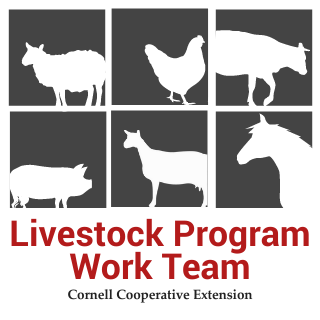Resources to Help You Navigate the HACCP Process
by Cole Trager
Understanding what’s involved in the HACCP (Hazard Analysis and Critical Control Points) process can be an intimidating hurdle for both beginning and experienced livestock processors since there are many different approaches and confusing questions. Should I hire a consultant? What should I include in my plan? Where can I find supporting documentation for aspects of my plan? These are just a few of the questions that might arise during the initial stages of this process.
The purpose of this article is to paint a brief picture of the HACCP plan and point livestock processors in the right direction of frequently requested resources. The HACCP plan is a living document that is meant to explain and support the practices at your plant. It is a preventative food safety tool for documenting and validating your processing systems. Everything you do should be included in the plan and any changes to your business should be updated in the plan. In this regard, it is never finished.
Some plants choose to hire a consultant, but this is not always necessary and there is certainly a benefit to writing your own plan. It is your plant and not every consultant is going to understand your business better than you. Similarly, plant owners might not want to outsource the HACCP plan because hiring this out removes you from an important aspect of your own business.
There are also other resources available to you besides consultants, including a USDA list of HACCP coordinators by state. Coordinators are affiliated with universities and provide additional one-on-one advice and assistance to small and very small plants related to HACCP and HACCP Validation. Coordinators also develop and provide training. You can find supporting documentation for HACCP plans on the USDA website in addition to Guidance for Small and Very Small Plants.
Ohio State University Meat Science Extension also has tremendous resources for HACCP Supporting Documentation and Plan Models, which can both be a great starting point for familiarizing yourself with the expected layout and design of the plan.
Finally, the Cornell Venture Center has a variety of programs and educational tools available to help develop products and services and the Niche Meat Processing Assistance Network (NMPAN) is one of the most comprehensive resources available to beginning and established plants for HACCP information and more.
Our hope is that you find these resources helpful and empowering as you begin to approach or update your plan. This can be an overwhelming process, but the combined resources and information above should allow you to craft a vision for your plant and your HACCP plan that will serve you well in the long term.
Additional Resources
Niche Meat Processing Assistance Network (NMPAN)
Ohio State University Meat Science Extension – HACCP Supporting Documentation
Ohio State University Meat Science Extension – Model HACCP Plans
FSIS/USDA Small Plant Guidance
HACCP Coordinators by State - Kimberly Bukowski, krb14@cornell.edu, is the contact for NYS
Cole Trager recently graduated from Colorado State University with a Master’s Degree in Extension Education. He spent the summer of 2022 interning at Cornell and worked closely with the livestock team to update some of our directories, assess processor needs, and develop resources to address those challenges. He’s originally from New York and works full time on the supply team for Walden Local Meat in the Northeast US. He has also spent the last decade farming in a variety of diversified livestock roles with brief stints in Wyoming and New Zealand.

